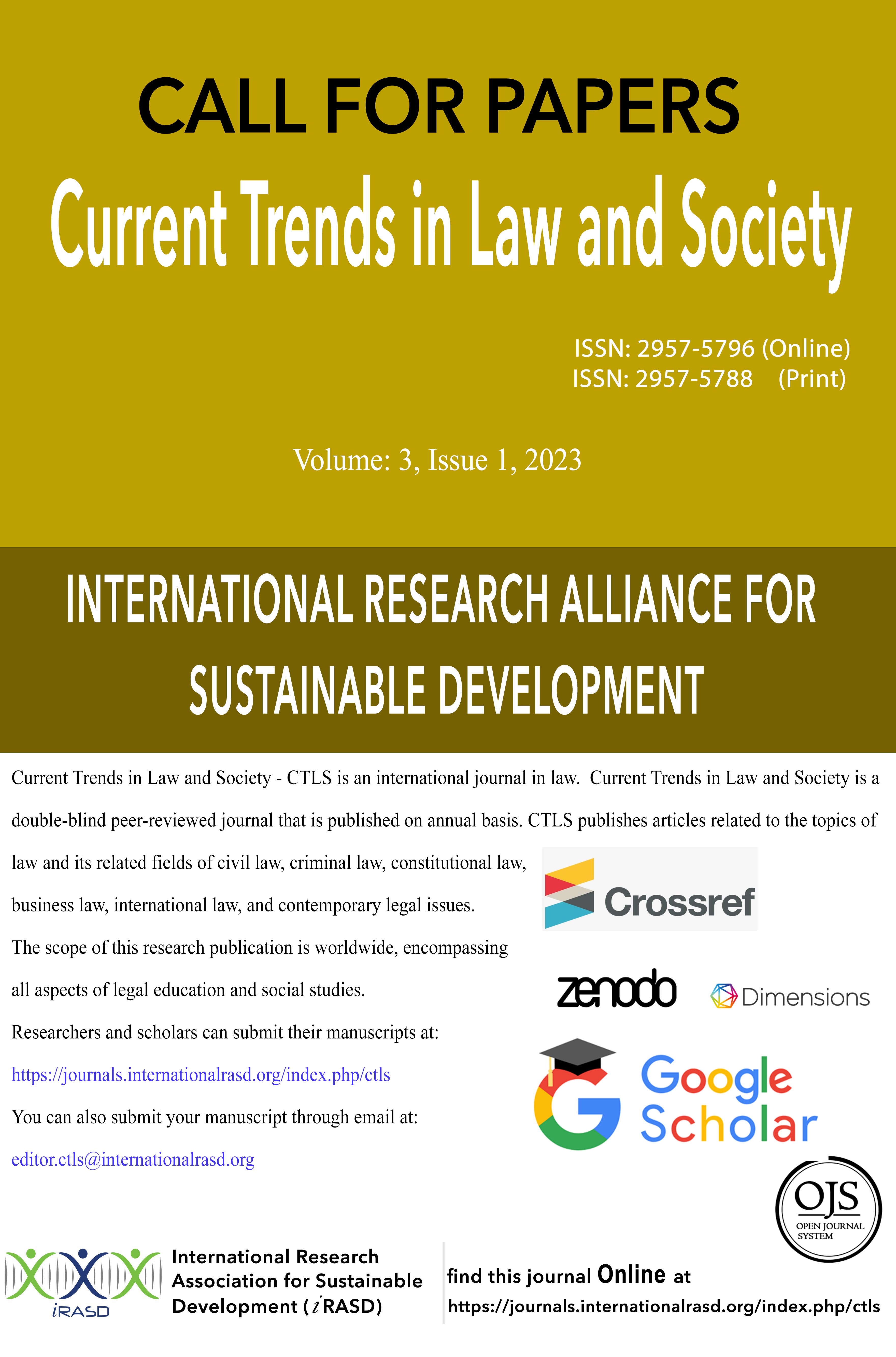Socioeconomic and Cultural Factors and Juvenile Delinquency in Pakistan: A Critical Analysis of Structural Theories
DOI:
https://doi.org/10.52131/ctls.2024.0401.0037Keywords:
Socioeconomic Factors, Cultural Factors, Juvenile Delinquency, Structural TheoriesAbstract
The article is a critical discourse on the immigration of youth crime in Pakistan as understood by structural theories. It leverages a variety of literature and empirical studies tries to show how the meeting of structural inequalities, gender norms, and individual experiences forms the background for the antisocial nature of young people, particularly in Pakistan. The practice framework integrates the strain model, social learning theory, and rational choice theory, among others, to provide the practitioner with a broader perspective of the various things that contribute to delinquency in children. The evaluation of present policies, programs, and interventions is done in a review, which checks whether they are able to address such underlying issues and recommendations on policy reforms are proposed. By emphasizing the community-specific socio-economic and cultural contexts, the work has underlined the need for a responsibility-tailored solution that integrates cultural and socio-economic considerations. The identified research shows that the requirements for community efforts to be made are a partnership among researchers, policymakers and community leaders who organize evidence-based interventions to create a more equal and fair juvenile criminal justice system in Pakistan.
Downloads
Published
Issue
Section
License
Copyright (c) 2024 Hafiz Muhammad Haseeb Ullah, Faiz Bakhsh

This work is licensed under a Creative Commons Attribution-NonCommercial 4.0 International License.







